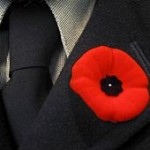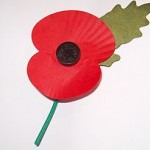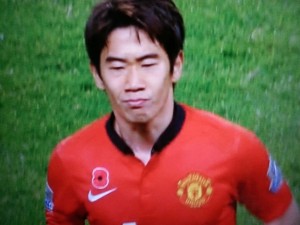Remembrance Day
If you ever watch BBC news on BS1 around November, you will see the newsreaders, interviewers and guests have a red flower attached to their lapel. This flower is a poppy, and it is worn to remember those who died in all wars, but the First World War in particular. Poppies were commonly seen in fields where some terrible battles took place in Belgium and France.
11月ころにBBCニュースを見ると、出演者が赤いケシの花をつけていることに気付かれるでしょう。戦争で、特に第一次大戦で犠牲になった人々をずっと記憶に残すため、人々はケシの花を身につけます。ケシの花は、大戦中、激しいバトルとなったベルギーやフランスの地でよく見られた花です。
During October and November poppies (some plastic, some real) can be bought from people selling them officially on streets and in shopping centres. The proceeds of these poppies goes charities which provide support to those who have been, or are still, members of the armed forces.10月、11月は、生花やプラスティツクのケシがチャリティーとして売られ、元イギリス軍、または現在軍に在籍し、サポートが必要な人々のために使われます。
In 2010, British Prime Minister David Cameron was in Beijing on Remembrance Day, and he was requested by the Chinese government to remove his poppy, as it symbolised all wars Britain had participated in, including the Opium Wars with China in the 19th Century. Cameron refused to remove it.
2010年、Remembrance Day に北京を訪れていたキャメロン首相は、中国政府から、ケシの花を外すよう要求されました。ケシはイギリスが関係した全ての戦争に対するシンボルであり、アヘン戦争も含まれるためです。しかし、キャメロン首相は中国の要求を受け入れませんでした。
Remembrance Day is November 11th, the day that the First World War ended. The ‘Treaty Of Versailles’ was signed on 11/11 at 11am in 1918.
Remembrance Day は、11月11日、第一次大戦が終わった日です。1918年11月11日11時にベルサイユ条約の調印が行われました。



